Read time: 4 minutes, 45 seconds.
Many athletes choose a plant-based diet for a variety of reasons. Some of these reasons include health, weight management, or ethical concerns. Some athletes also gravitate toward plant-based diets because of environmental concerns.
Whichever your reason for this choice, there are some things that plant-based athletes must consider. These nutrition considerations ensure optimum health and performance for vegan and vegetarian athletes.
Plant-based athletes who aren’t getting enough nutrients may experience muscle weakness, fatigue, poor recovery, and frequent injuries. These things can significantly hinder improvements in their sport or activity. Here are some things to consider ensuring plant-based athletes are getting enough nutrients to support their health and athletic performance.
Protein.
Adequate protein is essential for muscle growth and repair, which is important for all athletes. Animal products are excellent ways to ensure a variety of amino acids. Plant-based foods contain some amino acids but not to the degree that animal foods do.
A general guideline is for athletes to consume 1.2-1.7 grams of protein per kilogram of body weight per day. This is a bit more challenging for plant-based athletes but not impossible. Vegan and vegetarian athletes can obtain protein from legumes, soy products, nuts, and seeds.
Eating a variety of high-quality protein sources is important for making sure athletes get the full spectrum of amino acids. These foods individually contain a few types of amino acids. Consuming a variety of different protein sources will ensure that you’re getting enough amino acids that you need.
Quantity of total protein sources is also important. Vegan and vegetarian athletes need to consume slightly more total protein than their meat-eating counterparts. This is because plant-based protein sources are less bioavailable.
Also Read: 3 Must-have Protein Supplements and Why?
Iron.
Iron is an essential mineral that plays a crucial role in transporting oxygen in the body, supporting immune function, and producing energy. Iron deficiency can lead to symptoms such as fatigue, weakness, and reduced athletic performance.
Further Read: Why is Iron Important for Athletes?
Vegetarian athletes who do not consume animal products may be at a higher risk of iron deficiency as plant-based sources of iron are typically less bioavailable than animal sources. This means that the body may not absorb plant-based iron as effectively as animal-based iron.
Female vegetarian athletes are at higher risk of iron deficiency than males because they have menstrual periods. And if they are pregnant or breastfeeding, their risk of iron deficiency increases even more. Highly competitive female vegetarian athletes may want to consider working with a registered dietitian who specializes in sports nutrition. This will ensure they are meeting their body’s iron and other micronutrient needs.
To ensure adequate iron intake, plant-based athletes can consume iron-rich plant-based foods such as dark leafy greens, legumes, nuts, seeds, and fortified cereals. Pairing iron-rich foods with a source of vitamin C, such as citrus fruits or bell peppers, can also enhance iron absorption.
Vitamin B12.
Vitamin B12 is primarily found in animal products and is important for nerve function and the formation of red blood cells. Vitamin B12 deficiency can cause a variety of symptoms, including fatigue, weakness, and lightheadedness. Other symptoms can include pale skin, shortness of breath, and heart palpitations. Neurological symptoms of B12 deficiency can include numbness or tingling in the hands and feet, difficulty with balance and coordination, and memory problems.
The Recommended Dietary Allowance of Vitamin B12 for adults is 1.4 micrograms (mcg) per day. Many studies show that non-meat eaters have low vitamin B blood levels. Therefore, plant-based athletes should consider taking a supplement or consuming fortified foods.
Plant-based B12 fortified foods include breakfast cereals, plant-based milks, and nutritional yeast. Even then, these sources may not provide enough vitamin B12 to meet daily requirements. Therefore, athletes should consider taking a vitamin B12 supplement to ensure adequate intake. It is important for vegan athletes to pay attention to their vitamin B12 intake as a deficiency can lead to anemia, fatigue, and neurological problems that can negatively impact athletic performance.
Calcium.
Calcium is important for athletes as it supports the growth and maintenance of strong bones and teeth. It also plays a role in muscle function and nerve signaling. Vegan athletes in particular, because they avoid dairy products, may be at a higher risk of calcium deficiency. This is because dairy is a common source of calcium diet.
There are, however, some plant-based sources of calcium. These include fortified plant milks, tofu, leafy green vegetables, nuts, and seeds. Vegan athletes can also consider taking a calcium supplement if they are unable to meet their daily calcium needs through food alone. Adult athletes should consume at least 1,000mg of calcium per day. Female athletes over the age of 50 should increase that amount to 1200mg per day. Meeting daily calcium needs is important for maintaining optimal bone health and supporting athletic performance.
Omega-3 Fatty Acids.
Omega-3 fatty acids are also very important for plant-based athletes. They play a role in reducing inflammation, supporting heart health, and aiding in recovery from exercise-induced muscle damage. While animal-based sources such as fish and fish oil are the most commonly known sources of omega-3s, plant-based athletes can obtain these essential fatty acids from other sources. These sources include flaxseed, chia seeds, hemp seeds, walnuts, and algae-based supplements. It is recommended that adults consume at least 250-500 mg of omega-3s per day.
Plant-based athletes can incorporate these plant-based sources of omega-3s into their diets by adding ground flaxseed to smoothies or oatmeal, snacking on walnuts, or taking algae-based supplements.
Meat alternatives.
Vegans and vegetarians do not necessarily need to avoid meat alternatives, as they can provide a convenient and tasty way to transition to a plant-based diet. However, some meat alternatives are heavily processed and high in sodium. Like all processed foods, these options can be unhealthy if consumed in excess.
Remember that most meat alternatives do not provide the same level of nutrients as whole plant-based foods. For example, a soy-based meat alternative may not provide the same level of fiber, vitamins, and minerals as a serving of whole soybeans.
Additionally, soy and wheat are often ingredients in meat alternatives. These ingredients could cause inflammation in the body which would impact athletic performance.
Ultimately, meat alternatives are a personal choice that depends on individual preferences and nutritional needs. When possible, choose high-quality, minimally processed meat alternatives. And remember to include a variety of whole plant-based foods along with them to ensure adequate nutrient intake.
in summary...
Plant-based diets provide athletes with a very different nutrient profile than animal-based diets. Once these considerations are addressed, a plant-based diet can provide numerous health benefits for athletes. These benefits include faster recovery and reduced risk of chronic diseases. Vegetarian and vegan athletes must pay close attention to their nutrient intake, particularly for protein, iron, calcium, vitamin B12, and omega-3 fatty acids.
Macro and microutrients can be obtained through a variety of plant-based sources and supplements. Plant-based athletes may want to consider getting their micronutrient levels checked to rule out deficiencies. They also might want to work with a registered dietitian or nutrition coach to create a well-rounded meal plan that meets their specific needs. By carefully planning their diets, vegetarian and vegan athletes can enjoy the benefits of a plant-based lifestyle while maintaining optimal athletic performance and health.
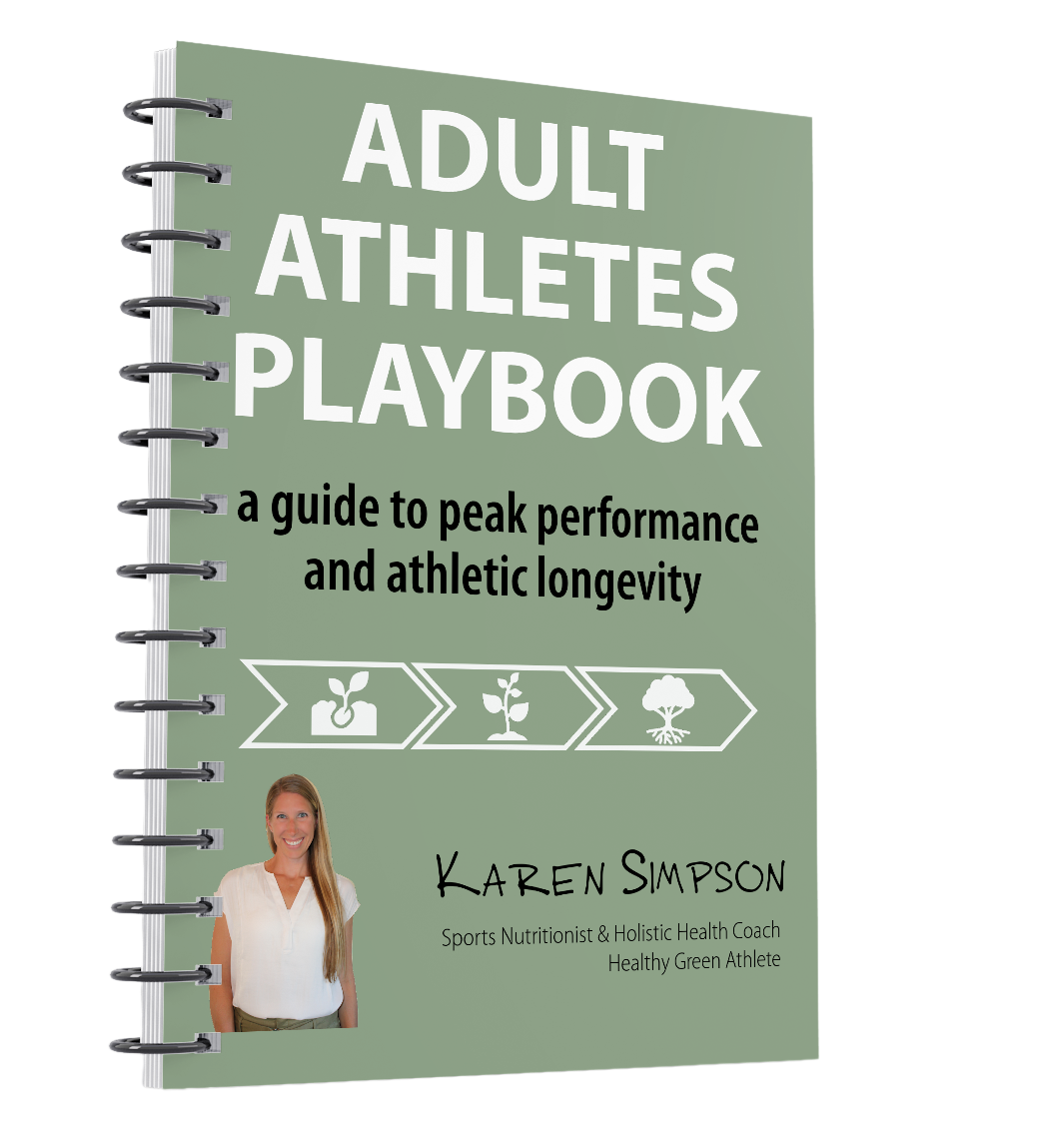
Adult Athletes Playbook
A Guide to Peak Performance and Athletic Longevity
This playbook will help you develop and implement a personalized game plan for improving athletic performance.
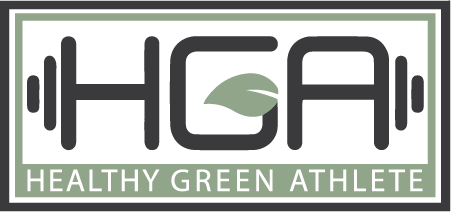
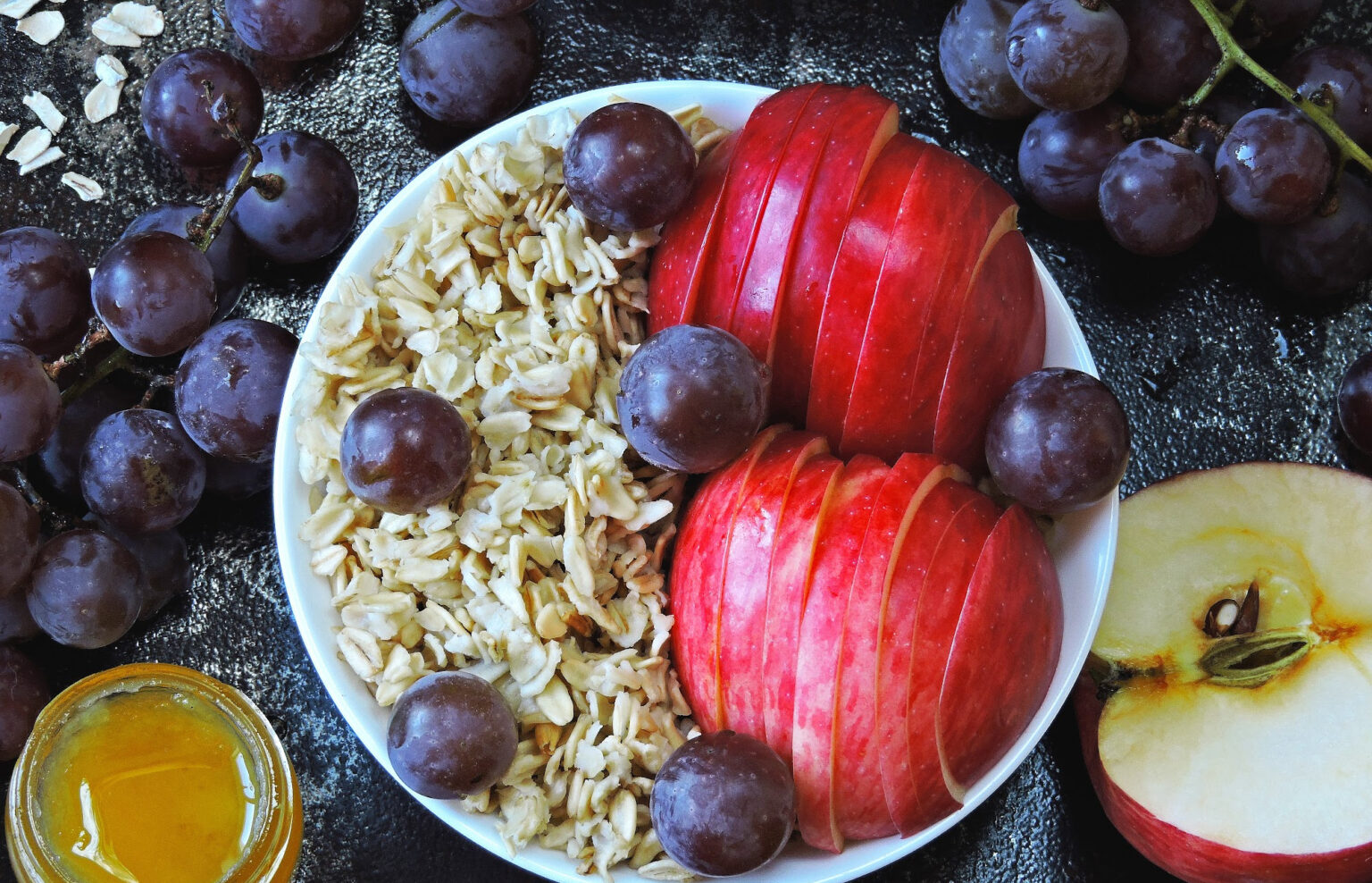
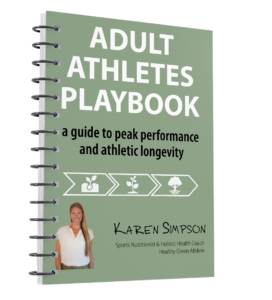

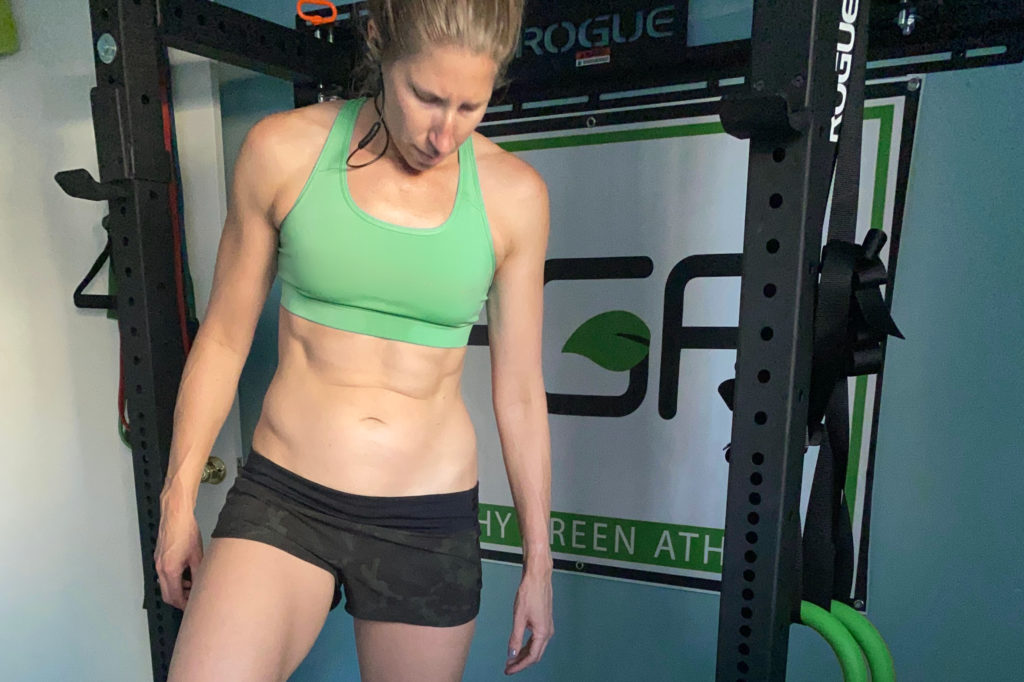

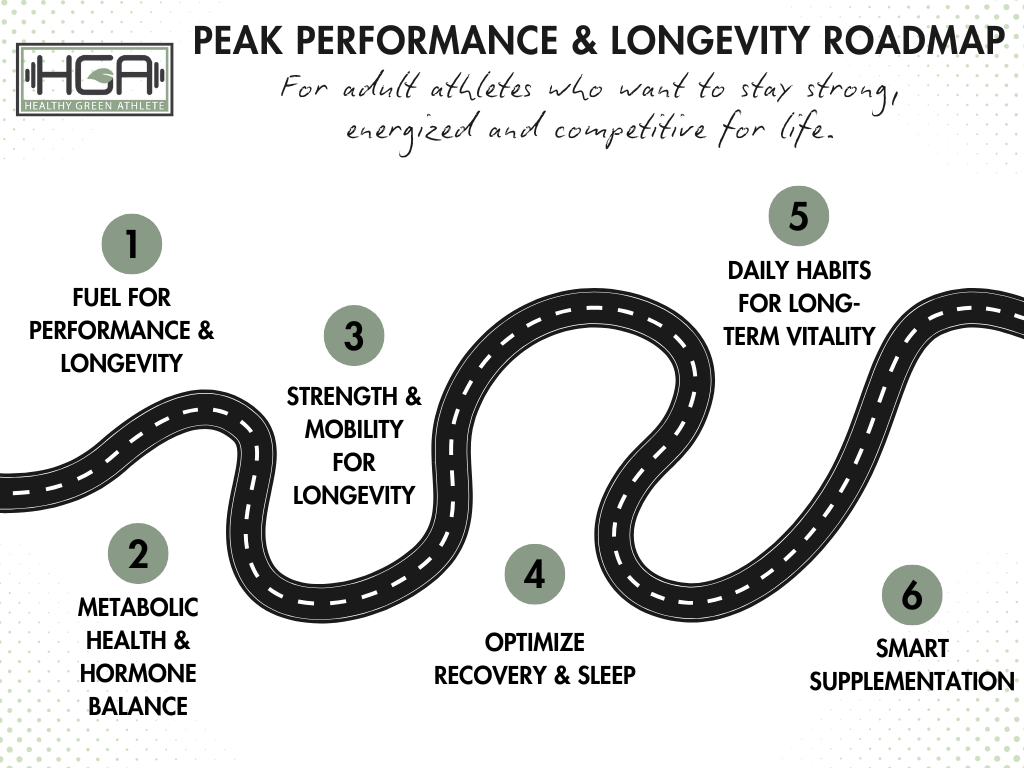
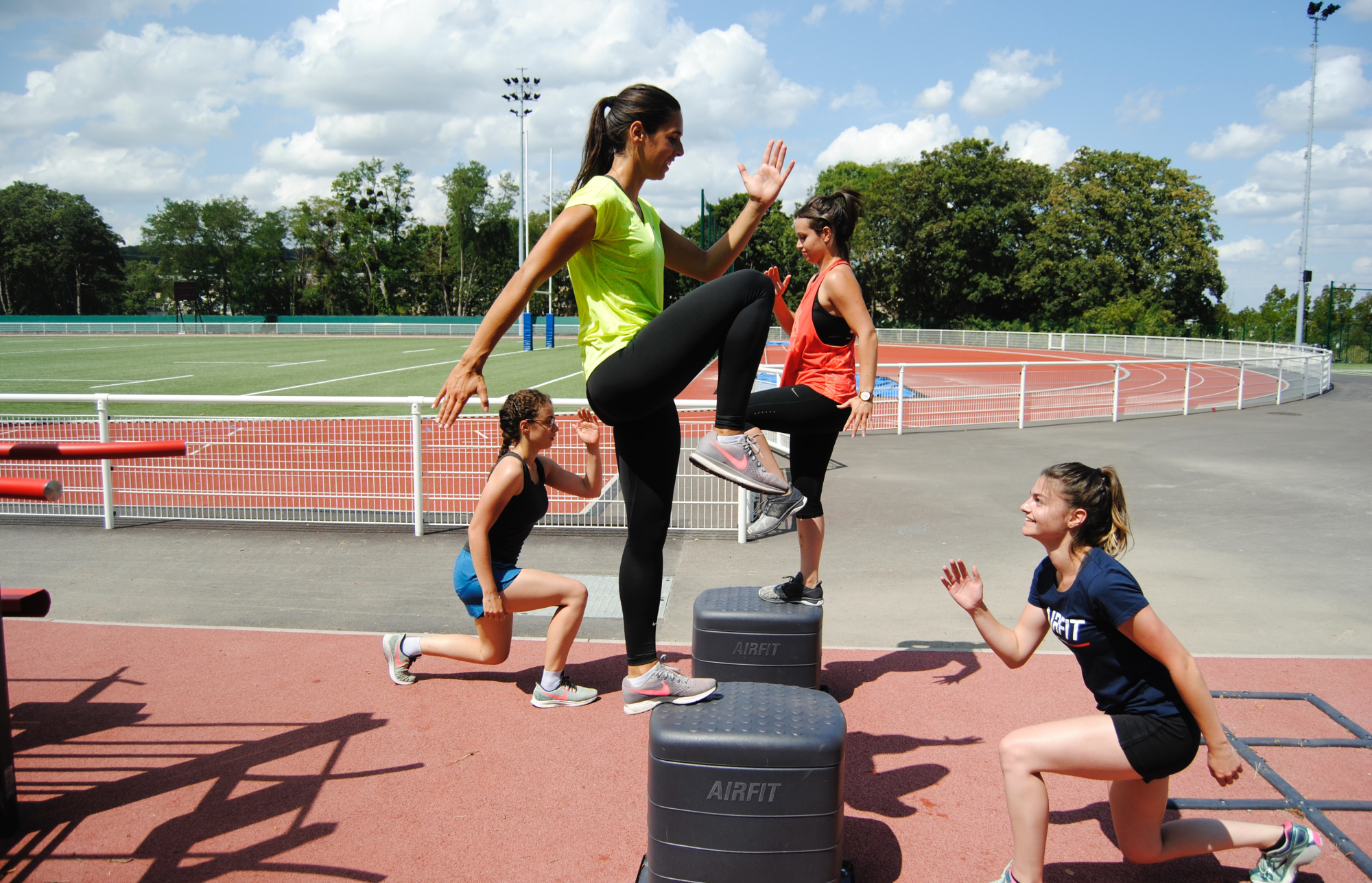


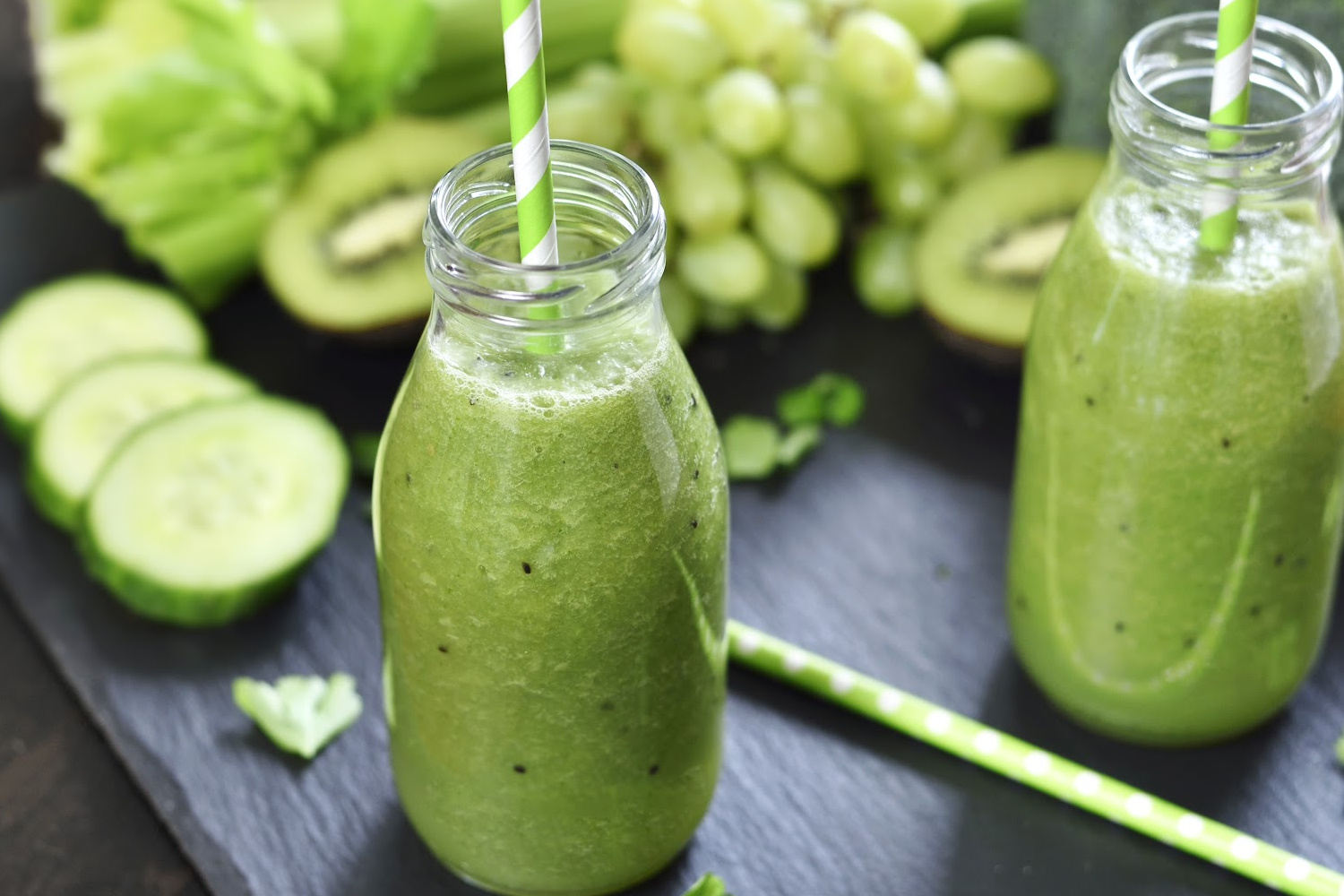
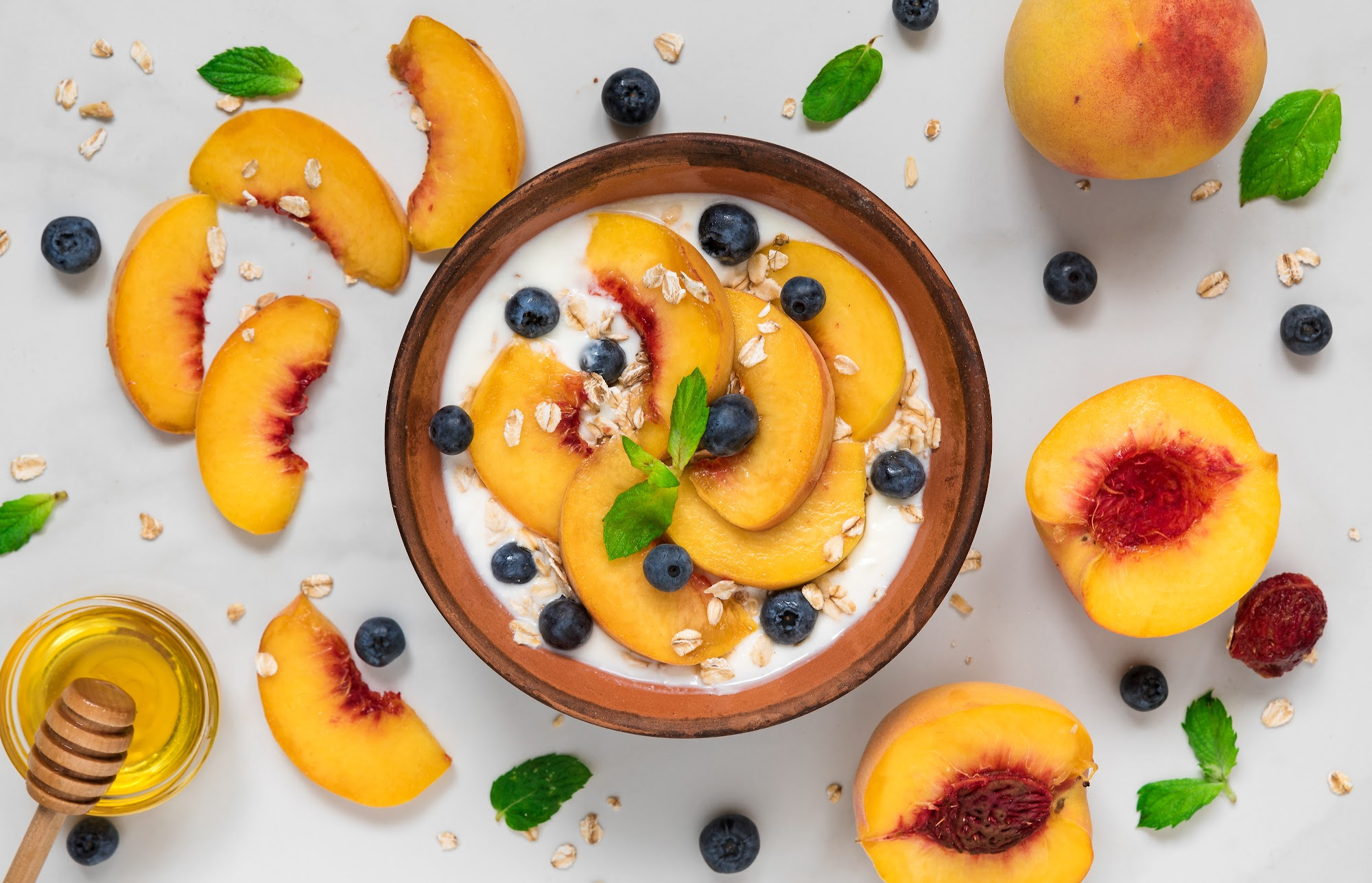

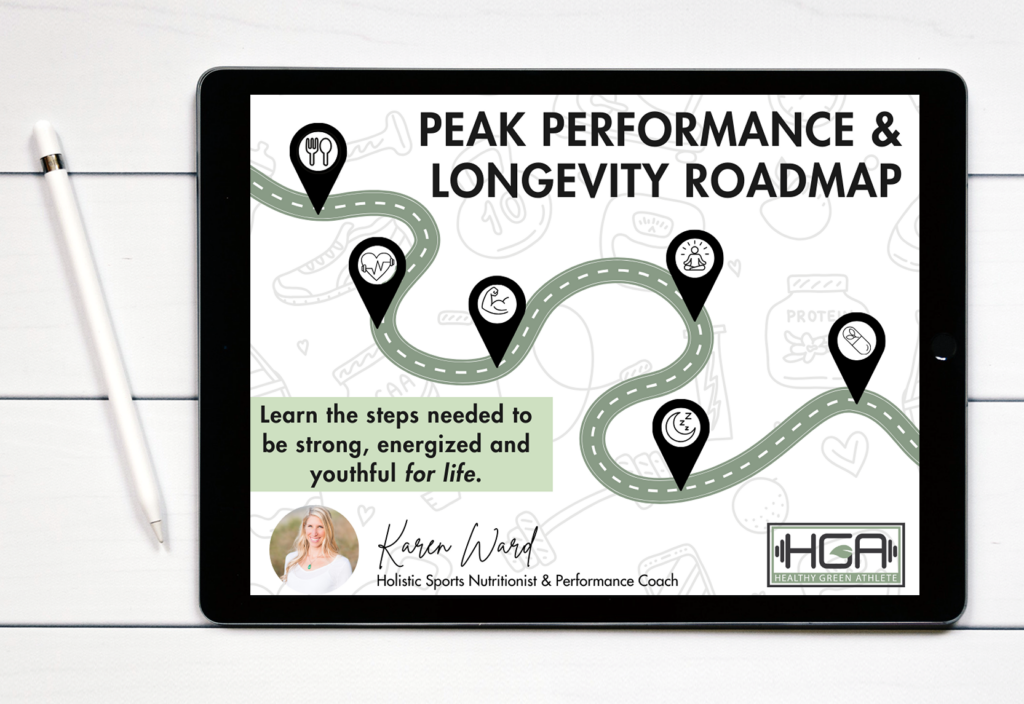
2 Comments
Pingback:
Pingback: